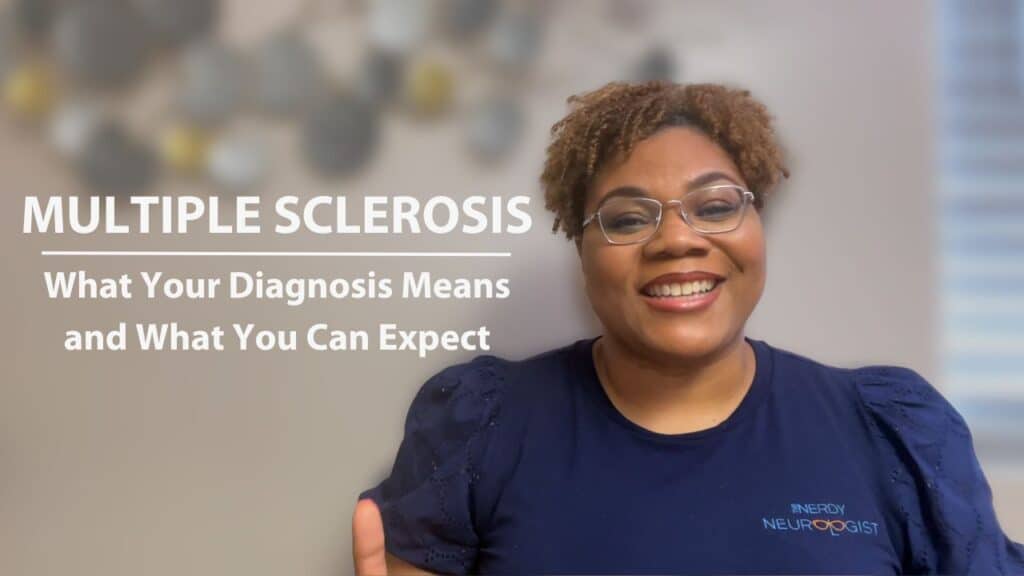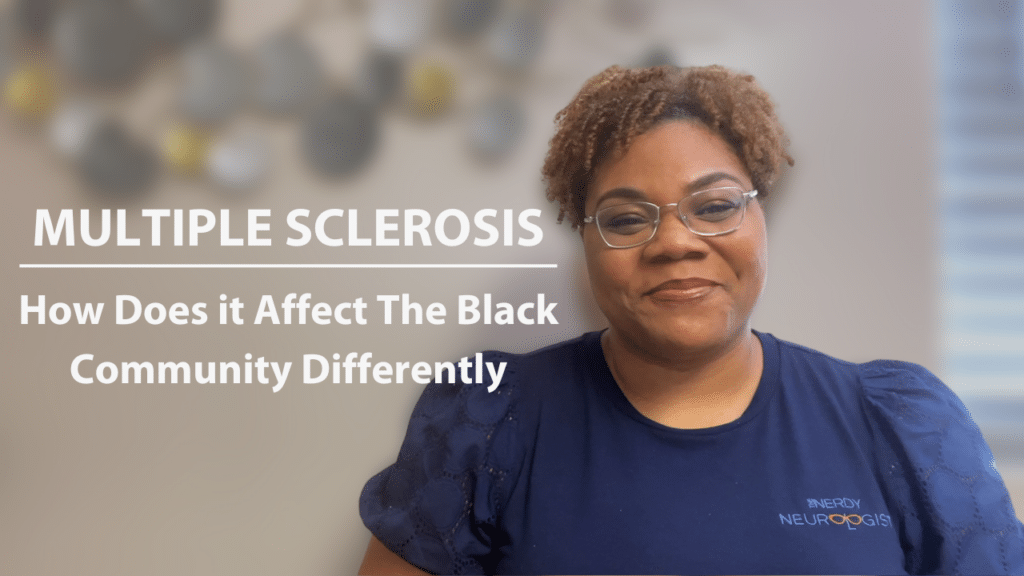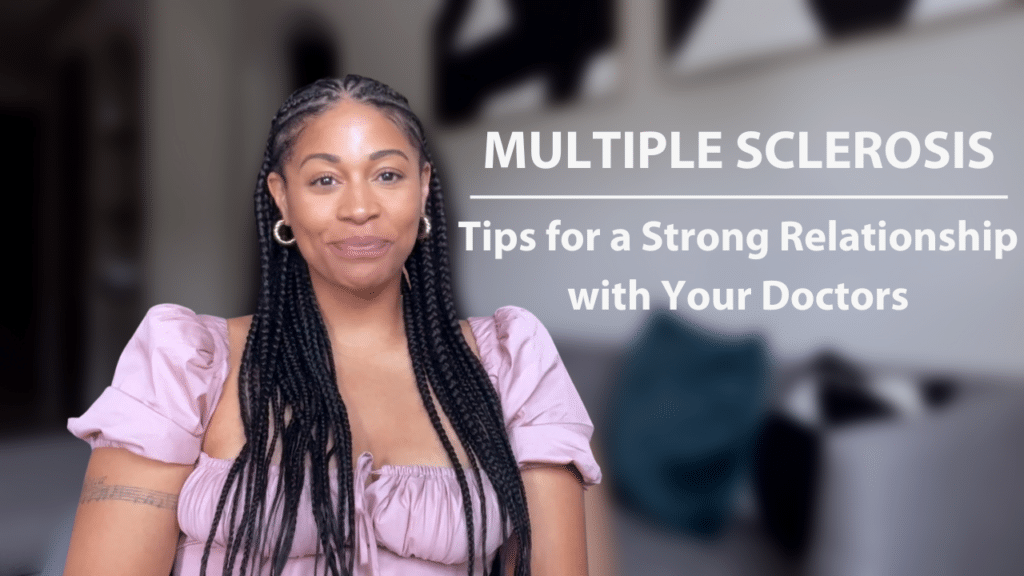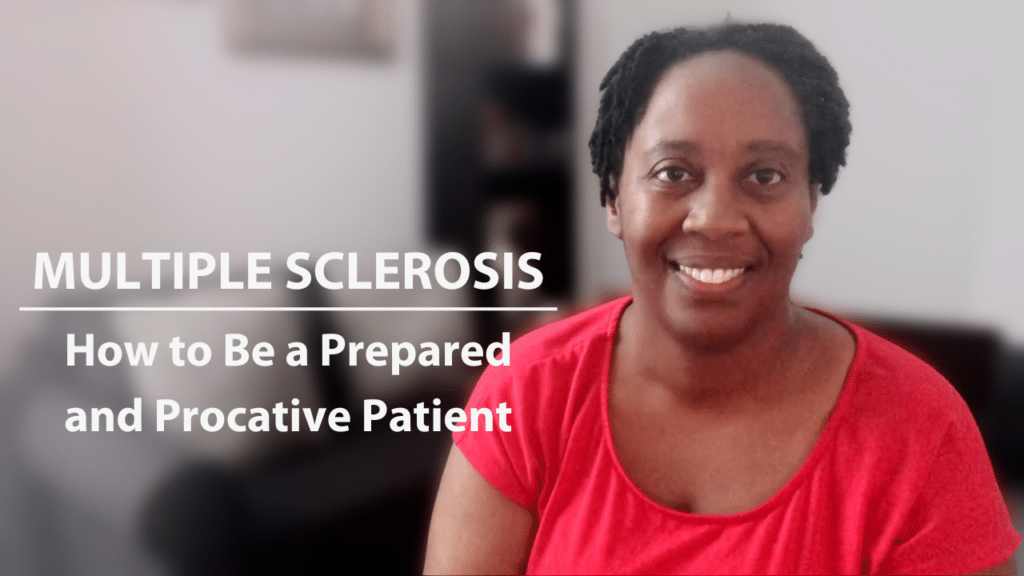The face of MS is changing.
Up until recently, MS was treated like a ‘white woman’s disease,’ often making Black people feel isolated or, worse, undiagnosed and unheard. Today, we know that Black populations have an increased risk for earlier and greater disability from MS. It can feel like the healthcare system is set up against you, that representation is lacking, and that the search for people you can relate to is an ongoing struggle. The resources below were created for you to educate yourself on your disease and learn tips on receiving the best care so you can live well with MS.
What Your Diagnosis Means and What You Can Expect
Understand the basics of multiple sclerosis and what you can expect living with this disease.
Featuring: Mitzi Joi Williams, Neurologist
In this video you’ll learn:
- What multiple sclerosis does to your body
- How to make sense of your MRI
- The different types of multiple sclerosis
- Common symptoms of multiple sclerosis
- First steps in living well with multiple sclerosis

How MS Affect the Black Community Differently
Why multiple sclerosis is different in the Black community and what you can do about it.
Featuring: Mitzi Joi Williams, Neurologist
In this video you’ll learn:
- What is different about multiple sclerosis in people who are Black
- Why there are differences and gaps in multiple sclerosis research, diagnosis, and care
- How inequalities create a different experience for a Black person
- What you can do about it

What and Who Can Help Manage Your Symptoms
Different treatment options, symptom management strategies, and healthcare professionals who can help.
Featuring: Paula Hardeman, Physician Assistant
In this video you’ll learn:
- The 2 main categories of disease modifying therapies (DMTs)
- Factors to consider when choosing a disease modifying therapy
- How you can manage your symptoms through lifestyle changes
- What healthcare professionals you can add to your team to help

How I Became My Own Best Advocate (And You Can Too)
Learn ways to feel empowered as a patient and take ownership of your health.
Featuring: Victoria Reese, Patient Advocate
This video covers:
- Why it’s crucial to take ownership of your healthcare
- How to effectively communicate your needs
- Ways to work toward a better quality of life outside your doctor’s appointment.

Tips for a Strong Relationship with Your Doctors
Victoria shares her tips for being open and honest with her doctors and when to know if it’s time for a second opinion.
Featuring: Victoria Reese, Patient Advocate
In this video she covers:
- How to be open when feeling overwhelmed or intimidated
- Tips for accurately describing your multiple sclerosis symptoms
- Warning signs that you are not being heard or respected
- How to know when it’s time for a second opinion

How to Be a Proactive and Prepared Patient
The importance of being involved in your own care.
Featuring: Paula Hardeman, Physician’s Assistant
In this video you’ll learn:
- Gaining the right knowledge of your plan of care
- Staying on top of your MRI schedule
- Understanding why treatment decisions were made

Just Diagnosed With MS?
Our Newly Diagnosed Toolkit walks you through the essentials of how to navigate MS. Learn about disease-modifying therapies (DMTs), make informed decisions about treatment, and understand what questions to ask your healthcare provider.
Download the Guide




